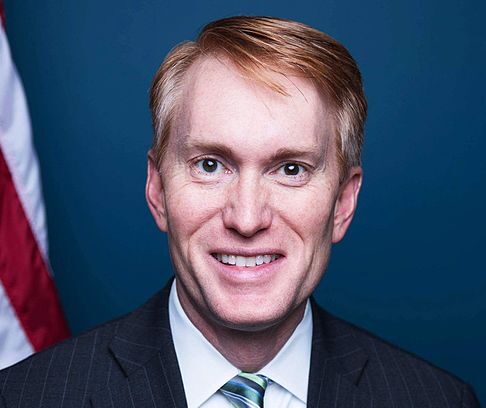Senators James Lankford (R-OK), Chris Coons (D-DE), Thom Tillis (R-NC), and Mazie Hirono (D-HI) wrote to US National Security Advisor Jake Sullivan to express “serious concerns” about the World Health Organization’s (WHO) proposed global accord on pandemic prevention, preparedness, and response, which would weaken intellectual property (IP) protections for companies that use public funding to develop successful pandemic-related treatments. Such a move would disincentivize research and development into vaccines for future pandemics, hindering the global ability to respond to another public health emergency. While the US Department of Health and Human Services (HHS) has issued a request for information (RFI) on the proposed WHO agreement, the Senators urged Sullivan to explore additional feedback.
The Senators wrote, “We agree that it is critical to prepare for the next pandemic and, in doing so, to think about how we can promote better global access to vaccines and medical treatments. We are concerned, however, that the proposed agreement threatens these laudable goals by undermining intellectual property (IP) laws based on a faulty premise that IP rights impeded the global response to the COVID-19 crisis.”
“We commend the initiative to improve the global response to the next pandemic, but waiving a broad scope of IP rights is the wrong way to accomplish that goal. As such, we urge you to seek significantly more public feedback than the recent HHS RFI, through hearings and studies, to inform US input on the WHO pandemic agreement,” the Senators continued.
The full text of the letter is available here or below.
Dear Mr. Sullivan:
We appreciate the Administration’s leadership during the COVID-19 global public health emergency and commend your efforts to prepare for future pandemics based on our experience responding to COVID-19. However, we write to express serious concerns about the proposed global accord on pandemic prevention, preparedness, and response currently being negotiated by the members of the World Health Organization (WHO), a new draft of which was released in October 2023, and for which Department of Health and Human Services (HHS) recently issued a request for public input (RFI).
We agree that it is critical to prepare for the next pandemic and, in doing so, to think about how we can promote better global access to vaccines and medical treatments. We are concerned, however, that the proposed agreement threatens these laudable goals by undermining intellectual property (IP) laws based on a faulty premise that IP rights impeded the global response to the COVID-19 crisis. The facts tell a different story. Indeed, a recent US International Trade Commission report investigating the supply and demand of COVID-19 diagnostics and therapeutics found that many factors other than IP were responsible for barriers to treatment access, including distribution challenges, delays in regulatory approval, weak healthcare infrastructure, and insufficient health education.
On the other hand, robust IP protection is at the core of successful pandemic preparedness. Strong IP rights encourage innovation by incentivizing investment in research and development and support many industries across various technologies that routinely develop new life-enhancing products. Contrary to what the draft WHO pandemic agreement text seems to presume, the IP system worked exactly as intended during the COVID-19 pandemic: It incentivized astounding innovations that led US companies and manufacturers to develop and distribute the first vaccines in record time.
The draft agreement under consideration, however, contains many provisions that would undercut— if not destroy—the very aspects of our innovation ecosystem that just recently produced such positive results. For example, the proposal mandates that companies that receive public funding will have to essentially give away their IP if they develop a successful treatment, whether through compulsory licensing, non-exclusive licensing, or by foregoing royalties. The proposed language does not limit these IP waivers to vaccines or medical treatments; instead, the waivers would apply to all “pandemic-related products”—a term that broadly includes any “products that are needed for pandemic prevention, preparedness and response.” This means that if a company successfully develops a pandemic-related product, that company will not be able to realize any return on investment, thereby discouraging the acceptance of public funding or pursuing research and development for public health products in the first place. In future pandemics, governments may offer money only to find that no one will accept it. As a result, governments would lose a critical tool to address future public health crises.
Even companies that do not receive public funding would be affected under the proposed pandemic agreement language. For instance, the agreement would require signatories to agree to time-bound IP waivers. Alarmingly, such a provision may lead companies to refrain altogether from developing new pandemic-related products and instead choose to invest in other areas that do not involve the same legal risks. If such a policy had been in place ahead of the COVID-19 pandemic, it could have prevented innovations critical to ending the global public health emergency, such as mRNA vaccines or Paxlovid. Further, without confidence in the protections that patent rights confer, companies are likely to turn to trade secrets to protect their innovations, which would inhibit the public disclosure of new knowledge and breakthroughs that underpins US patent law. Reliance on trade secrets means other scientists would not have access to new information, impeding their own scientific progress. Research would become siloed, slowing down a response to a new pandemic.
We commend the initiative to improve the global response to the next pandemic, but waiving a broad scope of IP rights is the wrong way to accomplish that goal. As such, we urge you to seek significantly more public feedback than the recent HHS RFI, through hearings and studies, to inform US input on the WHO pandemic agreement.

















